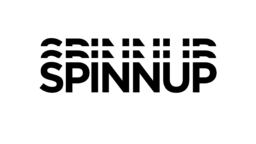Amongst the multitude of tempting reasons for Sony Music to acquire AWAL last year (*cough* instant market share *cough*) was the ex-Kobalt platform’s uncommon upload model for indie artists.
Rather than allowing all artists everywhere to upload their music to digital services (a la DistroKid or TuneCore), AWAL instead deploys a ‘first layer’ of A&R filtration. As a result, around nine in every ten tracks submitted to the AWAL platform are believed to be rejected.
Now, Universal Music Group is making a significant change to its own indie artist distribution business that brings it closer to the AWAL model – and slams the door shut on many DIY artists hoping to distribute their music via UMG.
From July 19 this year, Universal-owned distribution platform Spinnup will be changing from an “open DIY music distribution service” to a “curated artist discovery and distribution platform”.
That’s according to a notice published on the platform’s website this week, in which Spinnup explains that it “will be reducing the number of artists on the platform as we move into this new chapter”.
Spinnup, which was originally launched out of Sweden in 2013, followed by Norway, Denmark, Germany and the UK and France, reported in 2016 to have surpassed a milestone of 100,000 artists on its platform. Artists got to keep 100% of their royalties, after paying a fixed fee to use the platform.
The service stated in 2020 that it had worked with 80 artists in the US and Europe who had gone on to sign deals with frontline Universal labels.
During COVID lockdown, Spinnup, which let indie artists distribute to major streaming services like Spotify and Apple Music, launched an initiative that enabled artists to release a one or two track single for free via its platform throughout the month of May 2020.
And in June 2020 Spinnup expanded into Japan.
As first reported by Hypebot, Spinnup notified all of its existing users by email about the new change to its model on Wednesday (May 18).
A notice on the Spinnup website confirms that “some artists” will now be leaving Spinnup as part of the shift to an invite-only platform. As a result, those artists are also being asked to take down their releases and transfer to a new distributor by July 19, 2022.
“Spinnup is evolving into a fully curated invite-only artist discovery and music distribution platform,” states the Universal-owned platform. “This change means we can’t accommodate all current Spinnup users.”
In an FAQ section explaining how to get invited to use the new service, Spinnup explains that “invitations will be sent to artists who are in contact with or have been approached, by the Spinnup team or any other affiliates within Universal Music Group”.
It adds: “We ask that you please don’t contact our support team or message us on social media asking for an invitation.”
“On July 19 2022, Spinnup is changing from an open DIY music distribution service to a curated artist discovery and distribution platform. This means we will be reducing the number of artists on the platform as we move into this new chapter.”
Spinnup
States Spinnup on its website: “If you’re reading this, you’re most likely a Spinnup artist, and will have received an email from us about the upcoming change to the Spinnup service.
“On July 19, 2022, Spinnup is changing from an open DIY music distribution service to a curated artist discovery and distribution platform. This means we will be reducing the number of artists on the platform as we move into this new chapter.
“Artists who are leaving Spinnup are being asked to takedown their releases and transfer to a new distributor by July 19, 2022, after that date we will need to begin taking down any remaining live releases from departing artists.
“We’re here to help guide you through this transition if you are an artist who will be leaving Spinnup.
“We’ve put together guidance on everything you need to know to navigate this change, download your assets, transfer your releases, and manage your incoming royalties over the coming months.”
Spinnup is not the only distribution platform to pivot away from DIY distribution in recent years.
In June 2019, Stem revealed that it would be moving away from elements of its original business model by turning off the ability for any DIY artist to distribute their music through its platform.Music Business Worldwide




